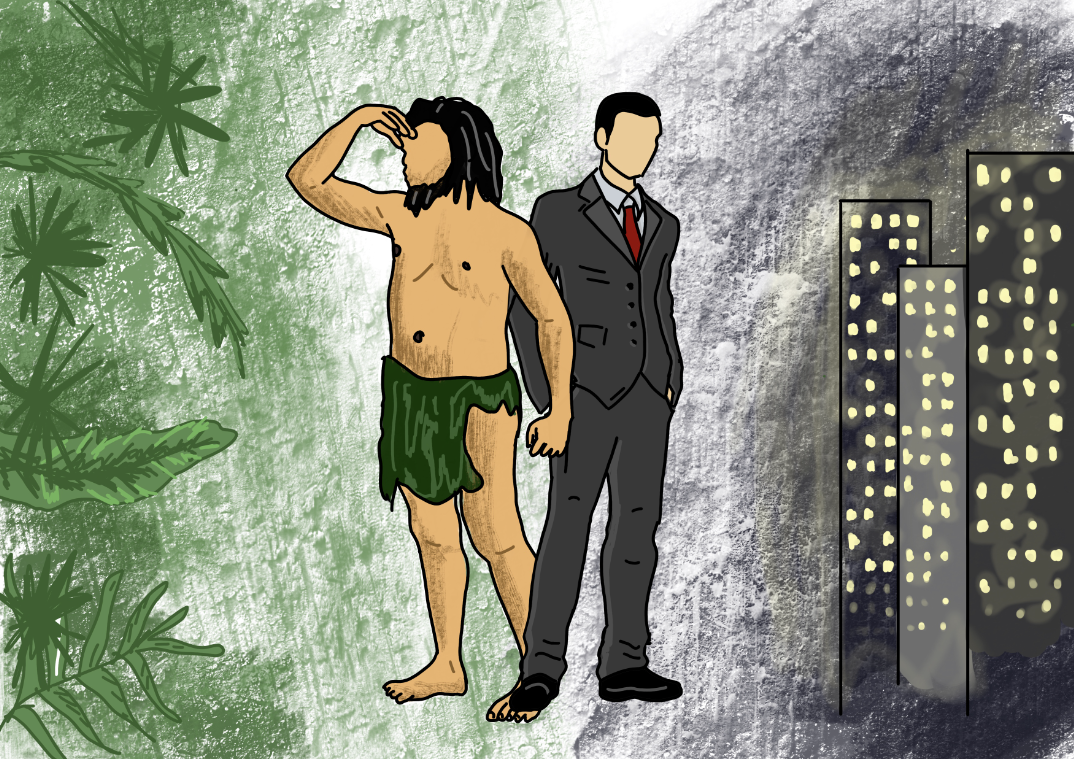When we think about the lives of hunter-gatherers, we are often overcome with notions of primitive hardships, shortened lifespans, and harsh existences marked by perpetual struggle, scavenging for sustenance in the unforgiving embrace of nature. However, when we compare our current society’s problems––from addiction and social issues to even crime in general––to the simpler, nature-centric existence of our ancestors, we see that most if not all these issues were absent. It begs the question: would we have been better off if we persisted in that way of life, simply being another link in the food chain? Humans thrived as hunter-gatherers for 99% of our existence, showing the undeniable success of that lifestyle. The evolution of human society from a simple, egalitarian nomadic existence to our current complex civilization, with its benefits, has been marked by environmental degradation, inequality, insecurities, social differences, and other challenges that have given rise to a system where power, prestige, and fame are all concentrated in the hands of a few individuals. This transition to a largely sedentary lifestyle has only caused complications to our basic needs, such as eating, sleeping, forming relationships with others, and reproducing, reinforcing the notion that we should have stayed hunter-gatherers.
One enduring consequence of our descent into civilization is environmental degradation. The pristine landscapes that once cradled nomadic tribes now bear the scars of “progress”—verdant expenses have been transformed into modern industrial ambitions casting literal shadows of pollution across the horizon. Our relentless march toward advancement has been accompanied by heedlessness toward nature’s delicate equilibrium. In a study done by the Field Museum on human impact on our planet, one curator said that “about 12,000 years ago, humans were mainly foraging, meaning they didn’t interact with their environments as intensively as farmers generally do” and with our transition into sedentary lifestyles 3,000 years ago came invasive farming.
When it comes to health, contrary to popular belief, evidence shows that hunter-gatherers might have been ahead of their time. While some may argue that their diets were primitive— meat-heavy and carb-loaded—our forebears thrived on their varied menu of meats, fish, fruits, nuts, and seeds. Fast forward to today, and modern indigenous tribes showcase a vitality that challenges the presumptions of many. An article written by the Duke Global Health Institute shows that “people who eat reasonable portions of healthy, wholesome foods and exercise regularly, like the Hadza[a modern hunter-gatherer group], generally enjoy better health than those who overeat, consume processed foods, and lead a sedentary lifestyle.” It’s not about counting calories or perfecting a supplement regimen as many do to stay healthy today, but about a more natural and holistic diet, an echo of our hunter-gatherer times.
Hunter-gatherer societies have also been shown to lead happier and more equal lifestyles. In The Old Way Book by Elizabeth Marshall Thomas, she says that “hunter-gatherers seem to possess exceptional mental health.” This can be attributed to their shorter work days focused on essential tasks, where the fruits of the hunt or the bounty from a hunt meant sustenance and connection for everyone. James E. Gangwisch in an article on work-time control confirms that “their workloads were relatively modest, requiring only about 20 hours per week to acquire and prepare food and to make tools, clothing, and shelter.” With the roles of men as hunters and women as gatherers, no one was put on a pedestal over anyone else, which meant more egalitarian societies would prevail. All of these revelations reflect a harmonious balance that disappeared with the advent of agriculture.
When we look back in time, we see that the decision to lay roots unfolded a tragedy, ushering in the cause of all our problems: inequality and unfairness. With stability came shifts in power, a bitter pill that exploited groups swallowed as the search for a better life yielded the rise of injustice. The environmental degradation, compromised health, and fractured mental well-being caused by this decision underscore the toll of our “progression.” We were unequivocally better off as hunter-gatherers, where life was simpler and more intertwined with nature, unshackled by the burdens that shroud our reality today.







































Francis Neelamkavil • Feb 15, 2024 at 8:51 pm
Very educative and deeply studied article. Well done Adharsh.